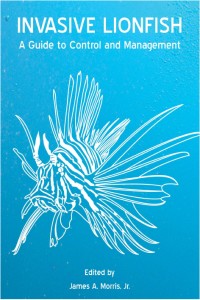
Recognizing the urgency to develop clear guidance on reducing the burgeoning lionfish population, NOAA’s National Centers for Coastal Ocean Science allied with experts from around the Caribbean to provide a reference for anyone planning to develop a local control strategy.
This free manual, Invasive Lionfish: A Guide to Control and Management, is aimed at resource managers, policy makers, field researchers, outreach coordinators, the fishing community, divers, and anyone aiming to take on this voracious invader. It provides the best available science and strategies for controlling lionfish in marine protected areas, national parks, and other conservation areas.
The introduction of lionfish into the Atlantic Ocean is now recognized as one of the biggest ecological disasters of the last two decades. They now live in nearly all marine habitats along the southeast U.S., the Gulf of Mexico, and the Caribbean. Densities of lionfish have surpassed certain native reef fish in many locations.
The ecological impacts of this invasion are far-reaching – from disruptions to the structure and function of reef communities to damage to commercial fishing and the tourism industry.The National Centers for Coastal Ocean Science has been at the forefront of lionfish research and remains a strong advocate of market solutions to reduce their population.
The publication is the result of the combined efforts of NCCOS and 47 experts representing over 25 organizations from 20 countries and territories of the wider Caribbean, including:
- Reef Environmental Education Foundation
- International Coral Reef Initiative
- University of the West Indies, Jamaica
- Simon Fraser University
- United Nations Caribbean Environmental Program
